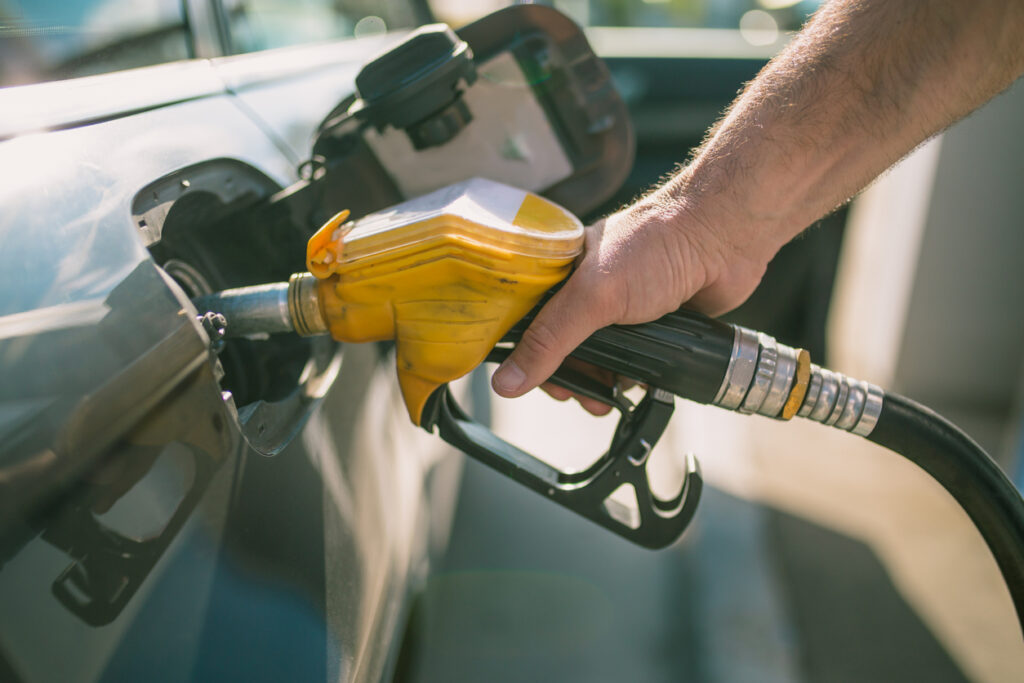Putting diesel in a gas engine is a mistake that can have serious consequences for your car’s performance and safety. While it may seem like a simple mistake, the reality is that diesel and gasoline engines are designed to run on different types of fuel, and using the wrong fuel can cause significant damage to your car. In this article, we’ll discuss what happens when you put diesel in a gas engine.
Diesel vs. Gasoline Engines
Before we get into what happens when you put diesel in a gas engine, it’s important to understand the difference between diesel and gasoline engines. While both types of engines convert fuel into energy to power the car, they do so in different ways.
Gasoline engines use spark plugs to ignite a mixture of gasoline and air in the combustion chamber, while diesel engines use compression to ignite diesel fuel in the combustion chamber. This fundamental difference means that the engines are designed to use different types of fuel and have different fuel systems.
What Happens When You Put Diesel in a Gas Engine?
If you accidentally put diesel in a gas engine, you may experience some or all of the following symptoms:
- Difficulty Starting: Diesel fuel is less volatile than gasoline, which means it’s harder to ignite. As a result, putting diesel in a gas engine can make it difficult or impossible to start.
- Rough Idling: If your car does start, it may idle roughly or stall frequently.
- Decreased Power: Diesel fuel has a lower energy density than gasoline, which means it produces less power when burned. This can result in decreased power and acceleration.
- Fuel System Damage: Diesel fuel can damage the fuel system components in a gas engine, including the fuel injectors, fuel pump, and fuel lines. This damage can be costly to repair.
- Catalytic Converter Damage: Diesel fuel can also damage the catalytic converter in a gas engine, which is responsible for reducing emissions. This can cause the car to fail an emissions test and require costly repairs.
What to Do If You Put Diesel in a Gas Engine
If you realize that you’ve put diesel in a gas engine, it’s important to act quickly. Here are the steps you should follow:
- Do not start the car: Starting the car can cause further damage to the engine and fuel system. If you’ve already started the car, turn it off immediately.
- Tow the car: Arrange to have the car towed to a trusted mechanic or dealership as soon as possible.
- Drain the fuel system: The fuel system will need to be drained and flushed to remove the diesel fuel. This is a delicate and time-consuming process that should be done by a trained professional.
- Check for damage: The mechanic should inspect the fuel system and engine components for damage. Depending on the severity of the damage, repairs may be necessary.

How to Avoid Putting Diesel in a Gas Engine
While putting diesel in a gas engine can be a costly mistake, there are steps you can take to prevent it from happening in the first place. Here are some tips to help you avoid putting diesel in a gas engine:
- Read the labels: When fueling up, make sure to read the labels on the pump and nozzle to ensure that you’re using the correct fuel type.
- Don’t rely on color: While diesel fuel is typically dyed green or yellow, this isn’t always the case. Don’t rely on color alone to identify the correct fuel type.
- Pay attention: Take your time when fueling up and pay attention to what you’re doing. Don’t let distractions or multi-tasking cause you to make a mistake.
- Label your car: If you have multiple cars with different fuel types, consider labeling them to help prevent confusion.
Final Thoughts
Putting diesel in a gas engine can have serious consequences for your car’s performance and safety. If you do accidentally use the wrong type of fuel, don’t panic – follow the steps outlined above and have the car inspected by a trusted mechanic. And to help prevent this mistake from happening in the first place, always read the labels, pay attention, and label your car if necessary. By taking these simple steps, you can avoid the costly mistake of putting diesel in a gas engine and keep your car running smoothly and safely.
The summary table of the symptoms and potential damage caused by putting diesel in a gas engine:
| Symptoms | Potential Damage |
|---|---|
| Difficulty starting | Fuel system damage |
| Rough idling | Catalytic converter damage |
| Decreased power | Engine damage |
| Fuel system component damage |
It’s important to note that this table is not exhaustive, and the severity of the symptoms and damage may vary depending on the specific car and circumstances. If you do accidentally put diesel in a gas engine, it’s always best to have the car inspected by a trusted mechanic to ensure that it’s safe to drive.
FAQs
Can you drive with diesel in a gas engine?
It’s not recommended to drive your car with diesel in a gas engine. If you accidentally put diesel in your gasoline car, don’t start the engine and seek professional help to avoid any damages.
Can you fix a gas engine after putting diesel in it?
Yes, it’s possible to fix a gas engine after putting diesel in it. However, the extent of the damage and the cost of repairs depend on how long you drove the car with diesel in the engine. It’s always best to seek professional help as soon as possible.
Can diesel ruin a gas engine?
Yes, diesel can ruin a gas engine. The properties and characteristics of diesel fuel are different from gasoline, and using diesel in a gas engine can cause severe damage to the engine.




0 Comments